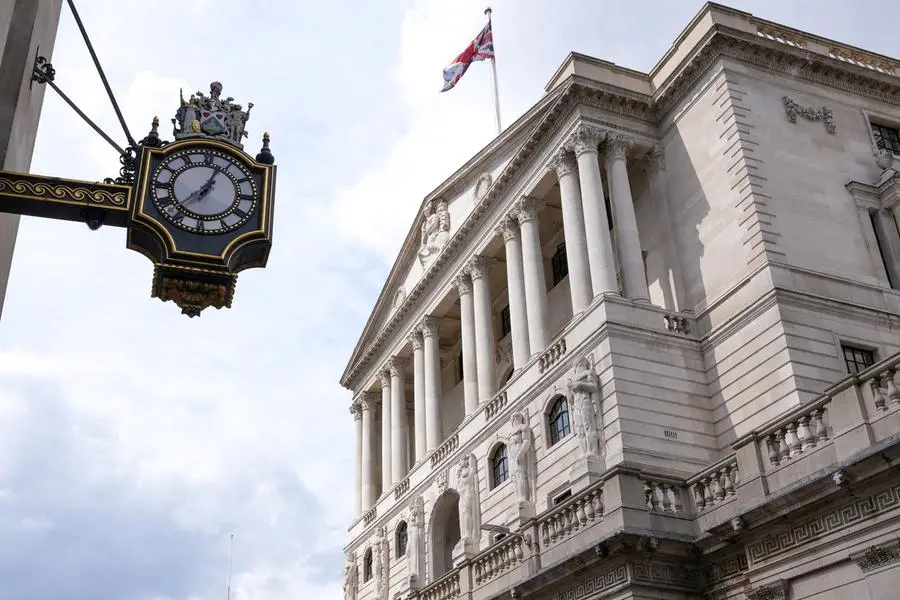PHOTO
LONDON: The Bank of England is expected to raise interest rates for the 11th time in a row on Thursday after a surprise jump in inflation dashed speculation that it might have been about to go on pause.
The BoE is trying to reconcile Britain's weak economic outlook and the worries about global banks with stubbornly high price growth, and it is due to announce its latest decision on rates at 1200 GMT.
Most economists had believed inflation was on course to fall steadily, after hitting a 41-year high above 11% in October.
But Wednesday's data - showing inflation rising to 10.4% in February rather continuing its descent - immediately turned Thursday's announcement into an almost one-way bet on a quarter percentage-point increase in Bank Rate.
As recently as Tuesday, investors were split almost 50-50 on whether the BoE would leave Bank Rate unchanged for the first time since November 2021.
Bets earlier this week on the BoE halting its run of rate hikes were further bolstered by the rescue of Credit Suisse and the collapse of Silicon Valley Bank which showed how some global banks were struggling to adjust to higher borrowing costs.
But investors in rate futures markets are now positioning for possibly two more 25-basis-point moves by the BoE by September after Thursday's expected hike.
On Wednesday, the U.S. Federal Reserve raised its main interest rates by a quarter of a percentage point, but indicated it was on the verge of pausing further increases. The European Central Bank last week stuck to its plans and raised rates by 50 basis points despite the Credit Suisse turmoil.
While some of the increase in the headline rate of British inflation announced on Wednesday was due to potentially one-off factors such as cold weather in Spain and North Africa which caused vegetable shortages, the underlying inflation measures that the BoE watches also rose.
WHEN WILL THE BOE STOP
Ben Nicholl, a fund manager with Royal London Asset Management, said the inflation jump was a "shocking data point" which added to other signs that the BoE will struggle to bring inflation all the way back down to its 2% target.
"It was only back in November when the BoE were sitting there saying: 'We are going into one of the longest recessions the UK has ever experienced'. Well, we've avoided recession for now," Nicholl said.
Pay growth is cooling but still running far above its historical average and shortages of workers remain acute which threatens to keep inflationary heat in the labour market.
The BoE was the first major central bank to start raising rates in December 2021 and had seemed likely to join the Bank of Canada which this month stopped raising borrowing costs.
BoE Governor Andrew Bailey and his colleagues last month dropped language saying that they were ready to act forcefully if the outlook suggested persistent inflationary pressures.
Thursday's announcement by the BoE is set to be limited to its Monetary Policy Summary and the minutes of its March meeting. No news conference by Bailey and his top colleagues is scheduled although Bailey is due to make a speech on Monday.
ING economist James Smith said he expected a rate hike on Thursday was likely to prove the last in the BoE's run.
"Assuming the broader inflation data continues to point to an easing in pipeline pressures, then we suspect the committee will be comfortable with pausing by the time of the next meeting in May," Smith said. (Graphic by Sumanta Sen; Additional reporting by Amanda Cooper; Writing by William Schomberg; Editing by Jonathan Oatis)





















